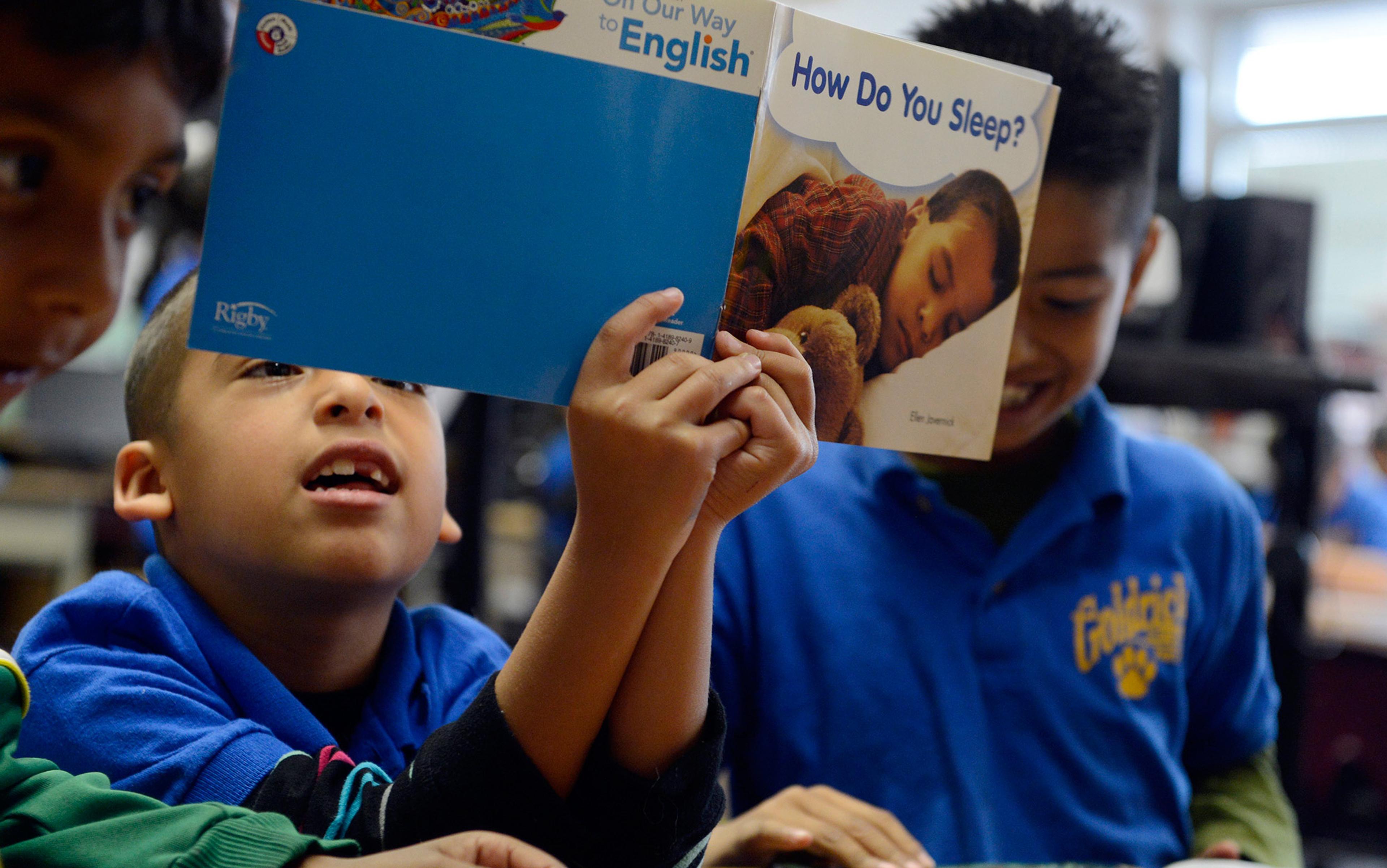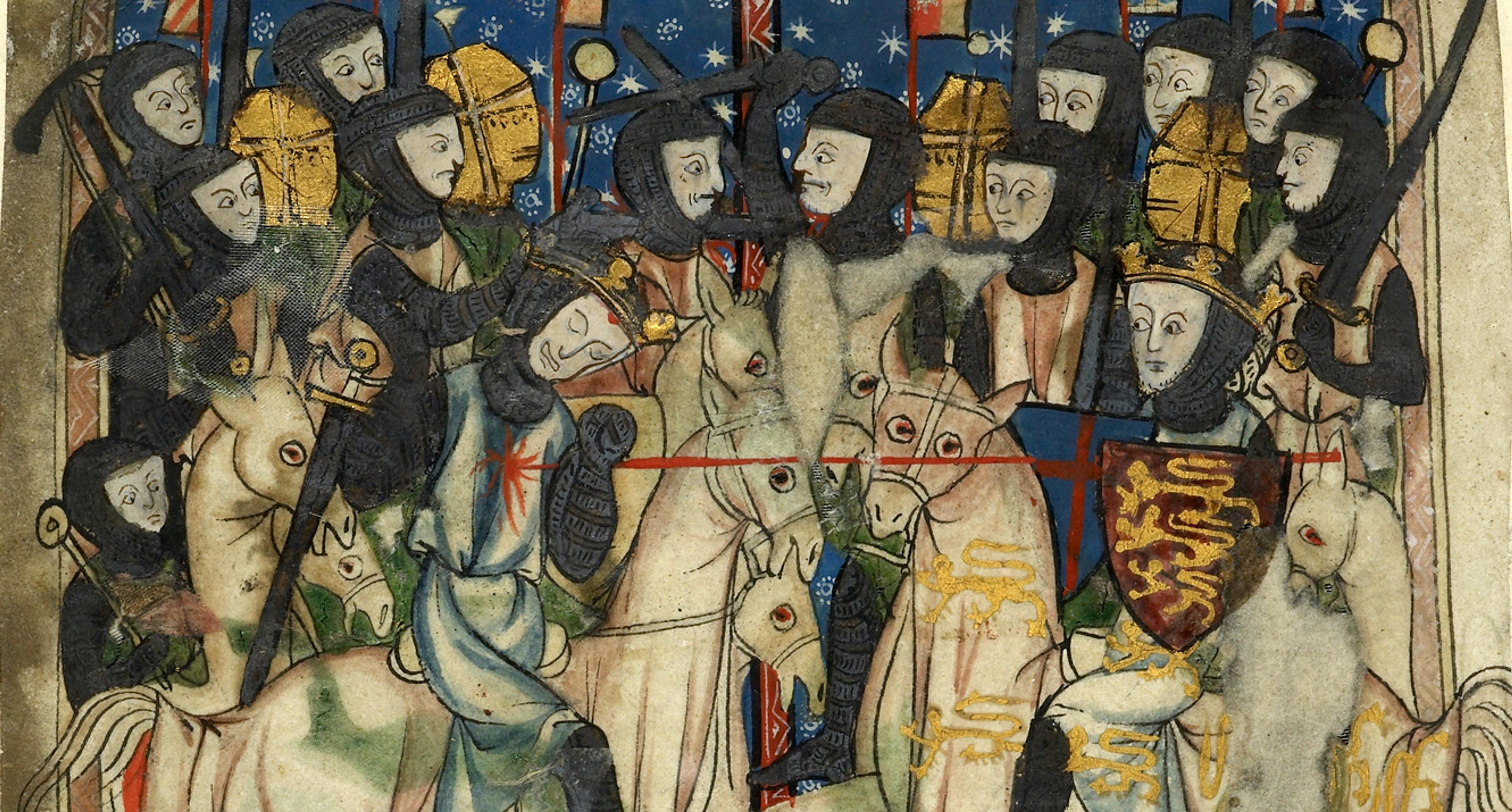In 400 years, English went from being a small language spoken in the British Isles to becoming the most dominant language in the world. In the year 1600, at the end of Queen Elizabeth I’s reign, English was spoken by 4 million people. By the 2020s, at the end of Queen Elizabeth II’s reign, that number had risen to nearly 2 billion. Today, English is the main language in the United Kingdom, Ireland, the United States, Canada, Australia and New Zealand; and it’s an ‘intra-national’ language in former British colonies such as India, Singapore, South Africa and Nigeria. It is Earth’s lingua franca.
For some, English is Britain’s greatest ‘gift’ to the world. In an online interview with ConservativeHome in May 2022, Suella Braverman, now the UK’s Home Secretary, said she was proud of the British Empire for giving its colonies infrastructure, legal systems, the civil service, militaries and, in her words, ‘of course, the English language’. On the other side of the political spectrum, in 2008 Gordon Brown, then the prime minister, delivered a speech in which he stated that he wanted ‘Britain to make a new gift to the world’ by supporting anyone outside the UK who wished to learn English. In the same year, The Times announced proposals for a new museum dedicated to the language, to ‘celebrate England’s most elaborate gift to the world’. And, more recently, Mark Robson of the British Council described English as ‘the UK’s greatest gift to the world’. The notion of English as a gift from Britain to the planet is so commonplace it’s almost unremarkable.
English may have become universal, but not everyone believes it is a gift. In fact, many hold diametrically opposite views. In an article in The Guardian in 2018, the journalist Jacob Mikanowski described English as a ‘behemoth, bully, loudmouth, thief’, highlighting that the dominance of English threatens local cultures and languages. Due to the ways in which English continues to gain ground worldwide, many languages are becoming endangered or extinct. This not only impacts relatively small languages like Welsh or Irish, but also larger languages, such as Yoruba in Nigeria, which are pressured by English in business, trade, education, the media and technology.
For this reason, a number of scholars in the field of sociolinguistics consider English a killer language and have described it as a kind of monster, like the deadly multi-headed Hydra from Greek mythology. Those who see English from this perspective consider its global roles a form of linguistic imperialism, a system of profound inequality between English and other languages, which are crushed under the might of a former colonial power, Britain, and the current world superpower, the US. In The Oxford Handbook of World Englishes (2017), the sociolinguists Robert Phillipson and Tove Skutnabb-Kangas note how ‘the international prestige and instrumental value of English can lead to linguistic territory being occupied at the expense of local languages and the broad democratic role that national languages play.’
The concept of linguistic imperialism is a reminder that the historical root of the dominance of English is four centuries of British Empire. English has a heavy load on its conscience. Its spread through space and time from the end of the 16th century until the end of the empire in the second half of the 20th century occurred in conjunction with imperial expansion, involving land-grabbing, genocide, slavery, famine, subjugation, looting and exploitation. This ought to be central in any discussion about English as a global language, not only because it is historically accurate but also because, in the words of the Nigerian writer Chinua Achebe in 1965, English ‘came as part of a package deal which included many other items of doubtful value and the positive atrocity of racial arrogance and prejudice’.
So, why is the English language not foregrounded in debates about decolonisation? In the early 21st century, decolonisation has been discussed primarily in relation to museums or celebrated historical figures with clear links to empire. But the global reach of English is just as much a product of empire as the British Museum or the statue of Cecil Rhodes adorning one of the colleges at the University of Oxford.
What exactly do I mean by ‘decolonisation’? Here, I’m not referring to the political process through which colonies gained their independence in the second half of the 20th century. One of the main ways we understand decolonisation in the 21st century is as a challenge to a system of knowledge that was put in place during colonisation and systematically imposed by the colonisers to provide a moral justification for colonisation itself. This justification revolved around a central principle: the coloniser was superior to the colonised, and therefore was not only justified to rule the colonised, but also morally obliged to do so. Based on this principle, the coloniser and the colonised were placed at opposite ends of the civilisation spectrum:
coloniser < – – – – > colonised
civilisation < – – – – > savagery
religion < – – – – > superstition
democracy < – – – – > absolute rule
nations < – – – – > tribes
literature < – – – – > oral tradition
languages < – – – – > dialects
The political decolonisation of the 20th century – when colonies gained independence – did not automatically dispel this system of knowledge on which colonisation was based, both in the Global North and in the Global South. The legacy of that mentality persists and pervades the way we see and understand the world. So 21st-century decolonisation is concerned with the goal of attaining what the Kenyan writer Ngugi wa Thiong’o in 1986 called ‘decolonising the mind’: first, becoming aware of and rejecting the coloniser’s system of knowledge that still lingers today; then, replacing it with more balanced, diverse, complex and locally relevant understandings of human societies and the relationships between them; and, finally, changing practices as a result. It’s a long and tortuous process, much more so than replacing one flag with another, or swapping one national anthem for another.
It’s a necessity if we are serious about rebalancing a worldview long skewed by colonisation
What the English language, the British Museum and Cecil Rhodes have in common is their problematic colonial legacy and the debates that go on about them being like ‘gifts’ or ‘monsters’. The Benin Bronzes on display at the British Museum – more than 900 decorative sculptures from the Kingdom of Benin in today’s southern Nigeria – may offer an opportunity for people to admire historical artworks but they are also tangible evidence of the systematic depredation that went on during colonial times. The Rhodes statue at the University of Oxford may celebrate this British politician’s generosity to the institution, but it is also a highly controversial visual image of a statesman who acted according to his firm belief that the ‘whites’ were the ‘supreme race’ during British rule in South Africa.
Artworks and statues of historical figures have been the subjects of heated debate because of the problematic colonial legacy they represent. Museums are under increasing pressure to consider the return of artefacts to their places of origin, especially when the ‘acquisition’ of such artefacts demonstrably took place through looting during colonial times. In this sense, the restitution of the looted Benin Bronzes to Nigeria would not only right a wrong, but also take on symbolic significance in the process of countering the very colonial system of belief that allowed the stealing of the bronzes in the first place. In other words, it would be an act of decolonisation. Similarly, the removal of the Rhodes statue from the University of Oxford is seen by many as a necessity if we are serious about rebalancing a worldview that has long been skewed by colonisation and its protracted ideological legacy.
Of course, there is also considerable resistance to this idea. Those who are sceptical about decolonisation tend to interpret the prefix de- as a form of censorship. For them, de-colonising anything would erase any and all connections to the colonial experience. For example, in response to the toppling of the statue of the slave trader Edward Colston in Bristol in June 2020, Boris Johnson, then the UK’s prime minister, Tweeted that: ‘We cannot now try to edit or censor our past.’ In a similar vein, responding to the suggestion that the Victoria and Albert Museum should be decolonised, Tristram Hunt – its director – remarked in February 2020 that ‘the origins of the Victoria and Albert Museum are embedded in the British imperial and colonial stories’ and that, for this reason, ‘to decolonise the V&A in many ways doesn’t make sense because you can’t.’
Understood as a form of erasure, decolonisation easily becomes an impossible or even undesirable task. But the problem with this interpretation is that it completely turns the meaning of decolonisation on its head. As I explained above, decolonisation entails first and foremost a profound and critical engagement with the colonial past, not its erasure.
What about the English language, though? What would the decolonisation of English look like? In this regard, there have been two main positions. One considers English a sort of ‘unwanted gift’ that, given its status as a global language, can be pragmatically-but-reluctantly accepted so long as it can be adapted, re-forged, and bent into different shapes. This ultimately de-anglicised English would be turned into an African and Asian language. In other words, English stops being the exclusive property of the British and the Americans, and becomes appropriated elsewhere in the world.
English spread around the world with the empire, and continues to be an inherently imperialistic language
Several African and Asian writers have been staunch proponents of this idea, from Achebe in the 1960s, to Salman Rushdie in the 1980s, all the way to Chimamanda Ngozi Adichie more recently. However, this position has also been criticised for being excessively optimistic and relevant only to a restricted and rather privileged elite, such as that of internationally renowned English-speaking novelists. From this point of view, the critics say, de-anglicising and claiming ownership of English is the prerogative of a few and remains well out of reach of the many, who continue to suffer from the erosion of their languages, cultures and identities.
The second position takes a more radical approach. From this perspective, English not only spread around the world with the empire, but it continues to be an inherently and unavoidably imperialistic language. From this perspective, appropriating the language is a mere illusion that acts as a distraction from the real problems: English continues to affect the lives of hundreds of millions of people, invading their societies as local languages are pushed out of education, the media and culture in general. So the decolonisation of English would entail a greater and healthier equilibrium between English and local languages, where the latter thrive and regain the status and roles that they lost due to the English juggernaut.
Of course, some don’t see any meaningful connection between the English language and decolonisation. Gordon Brown, in the same speech mentioned above, described English as: ‘the pathway of global communication and global access to knowledge’; ‘the vehicle for hundreds of millions of people of all countries to connect with each other’; ‘a bridge across borders and cultures’; and ‘a source of unity in a rapidly changing world’. For Brown, English is hardly a candidate for decolonisation. Tellingly, he described the spread of English as the result of an ‘accident of history’. Similarly, in one of the British Council’s many publications, The English Effect (2013), the language is described as something that ‘drives growth and international development’ and ‘changes lives’. The conclusion is: if English is a ‘gift’, it should be celebrated, not questioned.
To decolonise or not to decolonise? To understand the nuances of that question, it’s worth reflecting on why both sides of the debate share something fundamental in the way they talk about and imagine English: they describe the language through metaphor. A ‘gift’, a ‘monster’, a ‘bully’, a ‘vehicle’, etc are all things that are not literally language. And, indeed, this is what metaphor does at its most basic level: it talks about X as if it was Y.
Sometimes, as in the examples just cited, this mechanism is very overt. But most of the metaphorical expressions we use to describe the language go unnoticed. This is because they don’t include an obvious ‘X is Y’ form – as in ‘English is a pathway to success’ – and also because they are so conventionalised that we don’t tend to think of them as involving metaphor or creativity at all. For example, when we talk about languages, we often use words such as ‘birth’, ‘life’, ‘growth’, ‘development’ and ‘death’ – as if a language were a living organism. An expression such as ‘language develops all the time’ does not immediately appear metaphorical, as language is not explicitly described as something else. Talking about language as if it were a living organism is so conventionalised that, in the way we typically conceptualise it, language is a living organism.
We have to carefully consider grammar and meaning to parse the metaphorical essence
We use metaphors all the time, especially when describing complex phenomena via concepts that are simpler, more familiar and more readily understood. And language – as a complex social practice that is intricately embedded in culture and society – is a prime candidate for being talked about via metaphor. But metaphor is not only a rhetorical device used to make complex phenomena easier to understand. By treating something as if it was something else, metaphor can be a very powerful tool to encode and express ideology. Depending on the ‘something else’ we choose, we can use metaphor to express distinct ideological positions. Describing English as a ‘gift’ portrays the language as highly beneficial: a means of improving global communication and enhancing people’s prospects in life. Describing it as a ‘monster’ depicts the language as a threat to cultural and linguistic diversity: a weapon serving Anglo-American neo-imperialist interests.
However, things become more interesting with metaphors that are highly conventionalised and therefore less visible. When the British Council states that English ‘drives growth and international development’ and ‘changes lives’, we have to carefully consider grammar and meaning to parse the metaphorical essence. To say that English drives growth and changes lives is to treat English as an entity that is somehow capable of performing actions. This involves a grammatical and a semantic shift, from English as an object that is learned, spoken and used by people, to English as something that can act upon other things or people – a doer. So, even if not explicitly stated, the ‘X is Y’ metaphor that we can retrieve from expressions such as ‘English changes lives’ is ‘English is a doer.’ And, once English has agency, it can also act on its own, independently of people. This can become powerfully ideological.
In English as a Global Language (2nd ed, 2003) – one of the most popular accounts of English as a global language by one of its best-known scholars – the British linguist David Crystal offers a perfect example that illustrates the ideological power of metaphor. In his book, we learn that ‘a common theme which can help us explain the remarkable growth of this language’ is the fact that it ‘has repeatedly found itself in the right place at the right time’. On the surface, a statement like that may appear to be mundane, but it’s loaded with ideology. Apart from the ‘living organism’ metaphor contained in the word ‘growth’, this statement treats English as if it were a traveller that fortuitously happened to be in particular places at particular times in its journey around the world. The traveller metaphor also portrays English as possessing human-like qualities and its own volition, suggesting that language expanded across the world due to actions that English took at various points of its ‘life’. Through the logic of this metaphor, what spread English was English itself, not colonisation. If English is a traveller, empire is erased. Its spread? Just ‘an accident of history’, in the words of Brown.
Once empire is edited out of the equation, the global expansion of English is sanitised, and emphasis can be placed on how remarkable such expansion has been, how beneficial the presence of English is globally, and so on. In other words, English can be talked about as a true ‘gift’ to the world, without having to deal with the uncomfortable ‘package deal’ that the ‘gift’ came with. Crystal’s account of English as a global language – that ‘repeatedly found itself in the right place at the right time’ – has been described by critics such as Robert Phillipson as being ‘Eurocentric’ and ‘triumphalist’ and in need of being decolonised.
English is not an animate being with the capacity to ‘open doors’, ‘change lives’ or ‘kill’ other languages
On the other side of the debate, English is also described though metaphor. An illustration of this is a collection of essays titled English Language as Hydra (2012), which aims to discuss ‘the immense power that is being wielded around the world by the English language’. In this volume, English is not a ‘gift’. Instead, it is referred to as a thief, a bully, a monster, and so on. In the introduction, by the editors Vaughan Rapatahana and Pauline Bunce, we read that:
Wherever [English] goes, it takes with it, via its inherent discourses and structures – in a seemingly beneficial fashion – a whole panoply of inherent controls, expectations, attitudes and beliefs that are often counter to those of the learners themselves.
And, also, that:
today’s English language Hydra has managed to increase its geographical range to span the planet. English has adapted to a wide range of environments by developing different heads in different places and sometimes different heads in the same place. It has also developed its own symbiotic relationships with societies, businesses, governments and education systems.
While I am sympathetic to the sentiments underpinning these statements, I think that this way of representing English does not do full justice to the aim of decolonising our discourse about it. English continues to be described as an entity capable of making its own decisions and moving independently of people. The quotes above portray English as a traveller and a kind of supernatural being that is phenomenally and insidiously capable of transforming as it expands across the world. Just like Crystal’s traveller, who happened to be in the right place at the right time, these representations deflect attention away from the fundamental issue: a world order that was shaped and is still heavily determined by 400 years of European imperialism.
The figure of the gift is powerful. But attempting to counter it with metaphors of monsters draws critical voices into a rhetorical battle in which the rules of engagement have been set by their opponents. At most, what this can achieve is the usual conclusion that reality is complex. Within this frame, English is neither all ‘bad’ nor all ‘good’. In the meantime, the ideal scenario – where English retreats to a less dominant role, and other languages recover lost ground – remains just that: a theoretical aspiration without a credible and implementable plan of action.
The decolonisation of English should be approached more radically by changing the way we understand it and talk about it. Language is not an object or a thing, like an artefact in a museum or a statue in a city. And it’s certainly not an animate being equipped with the capacity to ‘open doors’, ‘change lives’ or ‘kill’ other languages. Instead, it is integral to and enmeshed with social practice. We all use language as we go about our daily lives – often more than one. No language, including English, is inherently ‘good’ or ‘bad’, nor is it ‘rich’, ‘powerful’ or ‘arrogant’. No language, including English, ‘does’ anything. It does not expand, it does not adapt, it does not evolve, it does not dominate. These are all shortcuts that obscure relationships between people and language.
It is people, not languages, that are powerful, under threat, greedy, generous and more. It is people, not languages, who expand their influence, adapt to situations, change their practices (including the ways they use language), dominate others, are subjugated by other people, and so on.
The ‘dominance’ of English in the world and the concomitant loss of other languages, identities and cultures are direct consequences of the very significant inequality that exists in the world, which is a direct consequence of colonisation and its long-lasting effects. The English ‘monster’ is a symptom of a serious disease, not the cause of it.
The decolonisation of English does not involve removing or returning an object. It involves reassessing what English is and, more crucially, what it is not.






